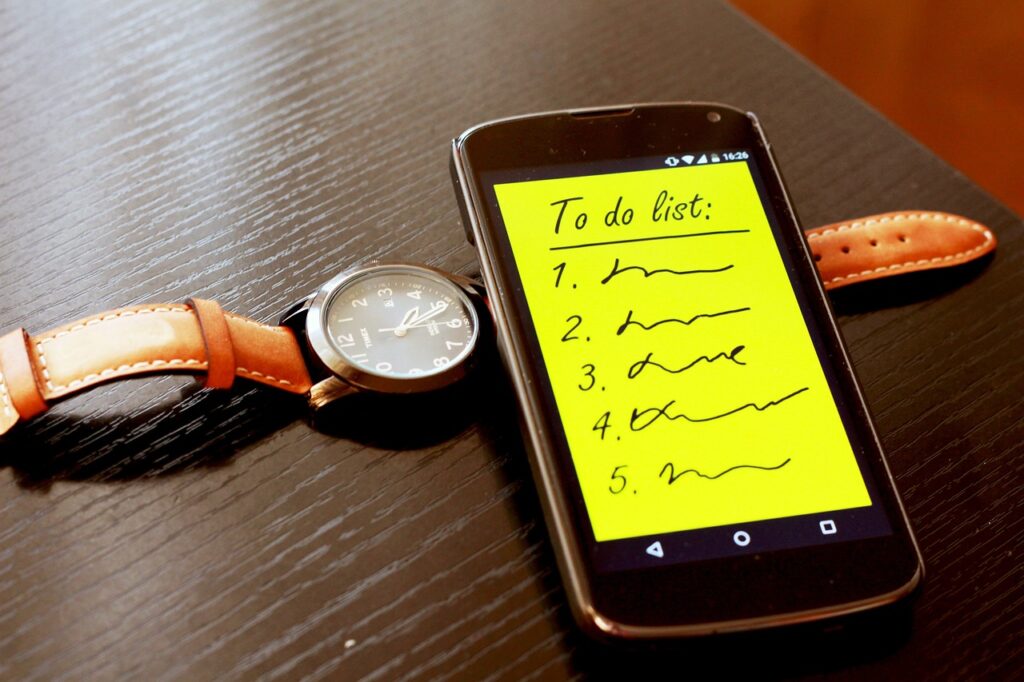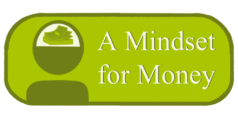
Have a List
Most of us have a list of what we know we have to do. Or, at least, we have been told we have things to do.
Many times, we find that more fun things tend to cause us to set aside our “to-do” list.
We give little value to our list, until deadlines emerge, and we are ill-prepared to get things done. We ran out of time!
But we had a list. That should be worth something. I am sure you can come up with believable excuses for not getting things done.
Must, Not Have to
As I started writing blog posts, I found myself making suggested corrections to my wording. The most frequent correction was changing “have to” to “must”.
We all know we have to do a lot of things. However, to make our days more productive, we must do them.
I imagine most of you can visualize someone multi-tasking at work, working long hours, and not taking time off to have fun. But getting things done has more to do with setting priorities than staying busy.
What Is Your Priority?
Between the known deadlines and our list of “must dos”, we must do some evaluation to identify what is most important and set an order to be done.
In his book, The 7 Habits of Highly Effective People, Stephen R. Covey refers to “The Time Management Matrix”, where he notes that you can classify your daily list into four categories. First, “Urgent and Important”, a top priority. Second, “Important but not Urgent”, maybe not due right away. Third, “Urgent but not Important”, simple tasks that are hard to avoid. Fourth, “Not Urgent, not Important”, some busy work that can be delayed.
How Do You Set Priorities?
Emphasis on education differs with each household. Hopefully, your parents encouraged you to read and learn all you can. If not, you can still make progress.
I am not trying to give you an excuse for not knowing what will be valuable to you. That is your responsibility. This is your life to live.
I can offer some good reading about managing your daily tasks. John C. Maxwell has a book, How Successful People Think. Please read it if you would like to learn more about how to become successful. It will help you define what success will look like.
You will learn how to set priorities by learning what will help you become successful.
John Maxwell notes, “Thinking divorced from actions cannot be productive.”
Add Value to Your Time
Organized thinking will help you make the most of each day. The hope is that you will use the time you have available each day to build on the actions from the day before. Some actions can accumulate to your benefit.
With money, accumulation will help the power of compounding. The early start and being consistent, the greater the benefit over time.
With knowledge, learned on purpose, gathered through consistent reading and study, you will accumulate a base of skills and knowledge that will add to your value as you seek employment or other sources of income opportunities. Of course, the same applies to adding enjoyment to hobbies and sports in which you might engage. It will help your family life, as well.
Do or Don’t
I want you to become successful. However, the choice is still yours to make. It is your privilege.
Remember, you are responsible for what you do with your time, your plans.
Your income, your spending, your way of life come from knowledge you accumulated, decisions you made, and choices about how and where you live. Of course, this includes your choice of friends and those you want to live with.
You define your life, either by the choices you make or the choices you refuse to make. Think about that.
I hope that you try to make educated decisions, by reading on the subject and considering the best option. Not all decisions are simple, and some require more commitment than others. But be smart and educate yourself as much as possible.
And don’t forget to include a discussion with those who will be affected by your decision.
Build a Mindset for Time
I know rest is important. But don’t rest too long!
If you can learn to value each day and what it has to offer, as in the opportunity to learn or earn, then, you will be more willing to put work and play and rest in their proper places and allocate time based on importance.
As you improve your view of the value of time and its use, you will begin to improve in all aspects of your life and relationships.
You can learn to value your work and income earning opportunities, your available time for recreation and creativity, and your time with friends and family.
The End Sum
I know it is your choice to read or not read, earn an income or not earn an income, accept your current situation or to try to improve conditions around you, or spend all you can or save first then spend.
However, remember that these decisions will accumulate over your lifetime. You may not notice much difference with poor decisions over a short time span. But, over years, you will notice your employment opportunities will be limited, emergencies will have you reaching for a credit card, and you will have very little left to invest in your retirement.
The best choice scenario is just the opposite. Better, smarter choices will show up as better income opportunities, more flexibility with where you can live, your savings will help you avoid the use of credit, and you can grow your retirement investments.
The sum of your accumulated choices at the end of your working career will tell a lot about how you valued each day along the way.
That is why I want you to look at your daily list of what needs to be done (which I feel is a “must”) and give value to each item to determine what is most important.
You will get better with this process with consistent attempts. And I realize this may not be an everyday thing. However, no less than weekly or you will lose track and lose available time to accomplish what needs to be done to help you become successful.
The important thing is that you do the important thing!
Remember: Your list will mean nothing with no action. Remind yourself that the list is more than a “have to”, it is a “must”!
